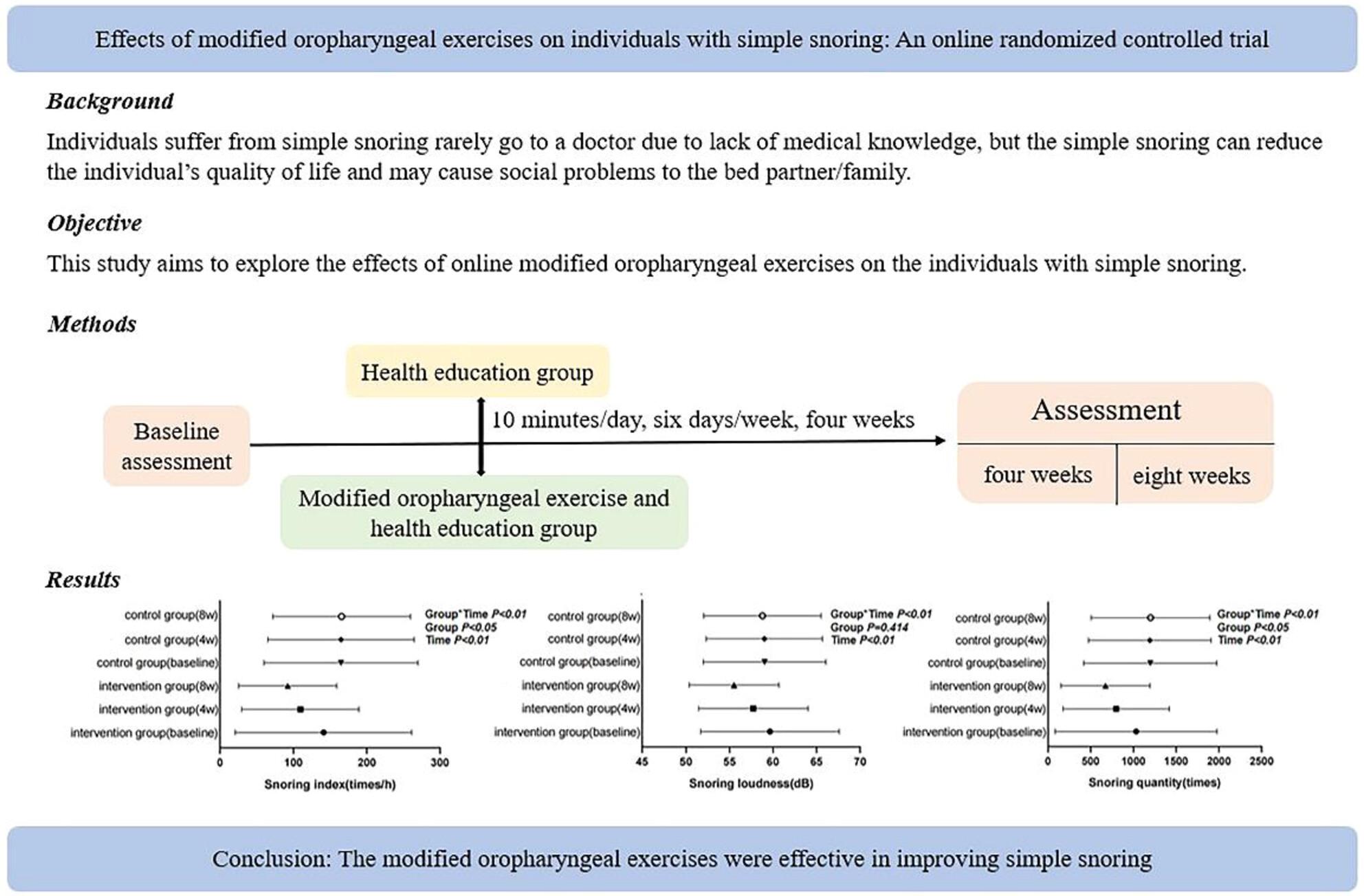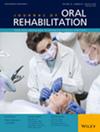Effects of modified oropharyngeal exercises on individuals with simple snoring: An online randomized controlled trial
Abstract
Background
Individuals who suffer from simple snoring rarely go to a doctor due to a lack of medical knowledge, but simple snoring can reduce the individual's quality of life and may cause social problems to the bed partner/family members.
Objectives
The aims of the present study are to explore the effects of online modified oropharyngeal exercises on the individuals with simple snoring and to provide a rehabilitation method for individuals with simple snoring.
Methods
This study is a double-blinded, two-arm, randomized controlled trial. Participants were enrolled and randomly assigned to the intervention group (n = 33) or the control group (n = 33). The participants in the control group received health education on snoring, while the participants in the intervention group received the modified oropharyngeal exercise besides health education on snoring. The intervention duration was 4 weeks. The primary outcomes included snoring index, snoring loudness, and snoring quantity. The secondary outcomes included self-reported snoring, sleep quality, daytime sleepiness, anxiety symptoms, depression symptoms, and quality of life. All outcomes were measured at baseline, 4 weeks, and 8 weeks.
Results
Generalized estimating equations (GEE) analyses showed significant differences between the intervention group and the control group on snoring index, loudness, and quantity (p < .001). Moreover, modified oropharyngeal exercise had effects on sleep quality, daytime sleepiness, anxiety symptoms, depression symptoms, and quality of life in individuals with simple snoring (p < .001). Self-reported snoring also improved at 8 weeks.
Conclusion
The modified oropharyngeal exercises were effective in improving simple snoring. It could also improve sleep quality, daytime sleepiness, anxiety symptoms, depression symptoms, and quality of life.


 求助内容:
求助内容: 应助结果提醒方式:
应助结果提醒方式:


